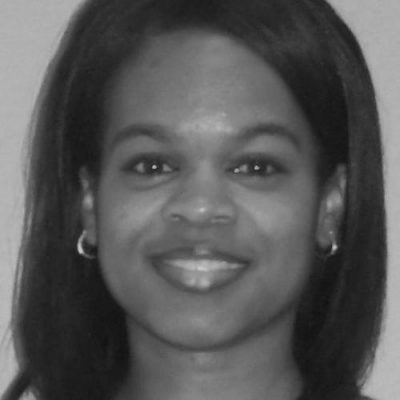Algebra 2 and Trigonometry
Placement Information
Placement Process
One critical factor for restful learning is the proper placement of students. If you are unsure which level is the best fit for your student, reach out to the instructor you are considering. Once registered, anticipate contact regarding placement evaluations from instructors by May 15th and throughout the summer. Students must be registered to enter the placement process. Early placement exams may allow time for tutoring or additional review based on the outcomes. See more about placement evaluations in our Student-Parent Handbook.
Math Placement Process
For registered students, please anticipate contact regarding placement evaluations from instructors by May 15th and throughout the summer. Students must be registered in a math course to receive a placement assessment. Math classes have a detailed and specific placement process.
Read more about the math placement process here.
Watch the math placement process video with our department chair, Dr. Fransell Riley, here.
See the Math Scope and Sequence here.
Required Materials:
Books and supplies are not included in the purchase of the course.
Sections with Dr. Riley or Dr. Sparks
- Digital Homework: ALEKS
- ALEKS delivers textbook practice problems to the students in a manner that promotes mastery and retention. Students work all problems on paper and turn them in for the instructor to review. Students are required to correct their work using ALEKS’ step-by-step solution; thus, they learn from their errors before trying another similar problem.
- Purchased via the instructor ($40) by 7/31. Info. will be sent via email in June.
- Paper Textbook (Optional): Reveal Algebra 2 Vol 1 and Vol 2
- The instructor does not teach from the book but uses it for example problems and structure. Thus, many students do not make use of the textboReveal Algebra 1 Vol 1ok. Therefore, its purchase is optional. Notwithstanding, this book has a superb organization of content with less arithmetic review, and a superb presentation of linear functions.
-
Mathematics for the Nonmathematician Excerpts (used print or digital is ok)
- This text will be used to learn some of the related history and philosophy of the concepts covered.
- Digital tablet. Choose from: Wacom Intuos, Huion, XP-Pen, or other.
- Three-ring notebook with five dividers or 5 subject spiral
- Binder Pencil Pouch with multiple sharpened pencils, erasers
- Scientific Calculator Examples: TI, Sharp, other
- Notebook Paper and Graph paper
- Free web accounts: ziteboard.com, desmos.calculator,
- Ziteboard is used often as a virtual classroom chalkboard, the others are used sparingly.
Sections with Eric Robinson
- Khan Academy (free account)
- IXL ($20)

Eric Robinson
[email protected]Eric Robinson has a MFA (Master of Fine Arts) degree in printmaking from Iowa State University and a BS in secondary math education from Western Governors University. Eric and his wife homeschool, so he has taught math from number recognition through Calculus 2. Having taught in private Christian (protestant and Catholic) schools and in public schools as well as tutoring in person and online, he is excited to teach courses in the Great Hall of Scholé Academy so that learning can be the true focus.
Eric was attracted to Scholé Academy for the commitment to restful learning. Eric loves the beauty of mathematical reasoning. He loves the feeling of accomplishment and confidence that comes from learning math. He loves the lightbulb moments, and he loves the real skills math builds--skills that make so many things doable and possible.
Eric also loves the Word of God. God is a God of truth and order, and so we find in scripture truth and logical arguments that help us to understand creation--God, ourselves, one another, redemptive history, and our hope in Christ Jesus. Eric loves sharing the Word of God to start every course session. Eric does that for the same reason he learns and teaches math: because doing so enriches us and helps us to discover the truths God has made. As Proverbs 25:2 says, "It is the glory of God to conceal a matter, but the glory of kings is to search out a matter."

Fransell Riley
[email protected]Dr. Fransell Riley, Chair of Math Department spent most of her career working as a quantitative analyst. She earned her PhD in mathematics from the University of Texas at Arlington with every intention of remaining in corporate America. Though she enjoyed her work, she ultimately responded to an internal call to pursue a passion for educating students, including her own children. Fransell has taught math and science to students of all ages from elementary school to college. While teaching, she noticed that her natural teaching style aligned almost perfectly with the concepts of classical education. She takes a holistic approach to teaching and involves her students in discussions aimed at developing a deeper understanding of the concept being taught with the desire that student learning extend beyond memorizing algorithms. Fransell has a passion for mathematics and seeks to share that passion with the next generation. Beyond math, Fransell enjoys spending time with her husband and 2 sons. They are all athletes and nature lovers; they enjoy participating in sports, hiking, exploring nature, and traveling. When they aren’t enjoying God’s creation, you can find them indoors reading or watching reruns from the Star Trek series.

Jacob Voyce
[email protected]Jacob Voyce brings over two decades of experience in Christian education, excelling in roles as both teacher and administrator across various private programs. Equipped with a BA in Bible and Theology and an MAED in Curriculum and Instruction, his diverse teaching background enables him to address the needs of students across all subjects. Having worked with students from kindergarten to adulthood, he currently homeschools his own children in Northern California. With a recent certification in coding data analytics, Mr. Voyce is also passionate about equipping students for future vocations and opportunities. He is committed to supporting families in their educational journey, fostering academic excellence and holistic development toward God. Beyond education, Mr. Voyce finds joy in participating in unique sports such as water polo, disc golf, and ultimate frisbee!
Quarter 1
- Functions and Transformations of Functions
- Properties of Graphs
- Solving Equations and Inequalities
- Solving Equations with Matrices
- Graphing and Solving Quadratic Equations
- Complex Numbers
- Quadratic Inequalities
- The order in which topics are presented may vary according to instructor and course section.
Quarter 2
- Polynomial Functions
- Dividing Polynomials
- Expanding Binomials
- Solving Polynomial Equations
- Proving Polynomial Identities
- Remainder and Factor Theorem
- Inverse Functions
- Rational Exponents
- Radical Functions, Expressions, Equations
- The order in which topics are presented may vary according to instructor and course section.
Quarter 3
- Exponential Functions
- Logarithmic Functions
- Properties of Logarithms
- Add, Subtract, Multiply, and Divide Rational Expressions
- Graphing Rational and Reciprocal Functions
- Variation
- Solving Rational Equations and Inequalities
- The order in which topics are presented may vary according to instructor and course section.
Quarter 4
- Random Sampling
- Statistical Experiments
- Analyze Population Data
- Normal Distributions
- Trigonometric Functions
- Circular and Periodic Functions
- Sine and Cosine Functions
- Inverse Trigonometric Functions
- Trigonometric Identities
- Solving Trigonometric Equations
- The order in which topics are presented may vary according to instructor and course section.
![]() Computer: You will
need a stable, reliable computer, running with a processor with a speed of 1 GHz or better
on one of the following operating systems: Mac OS X with Mac OS 10.7 or later; Windows 8,
7, Vista (with SP1 or later), or XP (with SP3 or later). We do not recommend using an
iPad or other tablet for joining classes. An inexpensive laptop or netbook would be much
better solutions, as they enable you to plug an Ethernet cable directly into your computer.
Please note that Chromebooks are allowed but not preferred, as they do not support certain
features of the Zoom video conference software such as breakout sessions and annotation,
which may be used by our teachers for class activities.
Computer: You will
need a stable, reliable computer, running with a processor with a speed of 1 GHz or better
on one of the following operating systems: Mac OS X with Mac OS 10.7 or later; Windows 8,
7, Vista (with SP1 or later), or XP (with SP3 or later). We do not recommend using an
iPad or other tablet for joining classes. An inexpensive laptop or netbook would be much
better solutions, as they enable you to plug an Ethernet cable directly into your computer.
Please note that Chromebooks are allowed but not preferred, as they do not support certain
features of the Zoom video conference software such as breakout sessions and annotation,
which may be used by our teachers for class activities.
![]() High-Speed Internet Connection:
You will also need access to high-speed Internet, preferably accessible via Ethernet
cable right into your computer. Using Wi-Fi may work, but will not guarantee you the optimal
use of your bandwidth. The faster your Internet, the better. We recommend using a connection
with a download/upload speed of 5/1 Mbps or better. You can test your Internet connection here.
High-Speed Internet Connection:
You will also need access to high-speed Internet, preferably accessible via Ethernet
cable right into your computer. Using Wi-Fi may work, but will not guarantee you the optimal
use of your bandwidth. The faster your Internet, the better. We recommend using a connection
with a download/upload speed of 5/1 Mbps or better. You can test your Internet connection here.
![]() Webcam: You may
use an external webcam or one that is built in to the computer. Webcam Recommendations:
Good (PC only) | Best (Mac and PC)
Webcam: You may
use an external webcam or one that is built in to the computer. Webcam Recommendations:
Good (PC only) | Best (Mac and PC)
![]() Headset: We recommend
using a headset rather than a built-in microphone and speakers. Using a headset reduces the
level of background noise heard by the entire class. Headset Recommendations: USB | 3.5mm
Headset: We recommend
using a headset rather than a built-in microphone and speakers. Using a headset reduces the
level of background noise heard by the entire class. Headset Recommendations: USB | 3.5mm
![]() Zoom: We use a web
conferencing software called Zoom for our classes, which enables students and teachers to
gather from around the globe face to face in real time. Zoom is free to download and easy
to use.
Zoom: We use a web
conferencing software called Zoom for our classes, which enables students and teachers to
gather from around the globe face to face in real time. Zoom is free to download and easy
to use.  To
download Zoom:
To
download Zoom:
- Visit zoom.us/download.
- Click to download the first option listed, Zoom Client for Meetings.
- Open and run the installer on your computer.
- In August, students will be provided with instructions and a link for joining their particular class.
![]() Scanner: In this
class, students frequently submit homework assignments by scanning pages from their workbooks.
Students and/or their parents should have easy access to a scanner and the ability to use it.
Scanner: In this
class, students frequently submit homework assignments by scanning pages from their workbooks.
Students and/or their parents should have easy access to a scanner and the ability to use it.
Step 1
Step 2
Step 3
Step 4
Explore our courses!
First, read the available course descriptions, noting prerequisites, target grades, and course objectives. If you think your student is prepared for the course, go ahead and register. After registration, a placement assessment may be provided to students, depending on the course and the student’s previous enrollment with Scholé Academy. Registration is finalized when the student’s placement assessment has been returned by the course instructor with placement confirmation.
All Courses | By Grade
Read the Student-Parent Handbook.
Please take careful note of our teaching philosophy, our technology requirements, our school policies, the parent agreement, and the distinctions between our grade levels.
Double-check the course section dates and times.
Make sure they don't conflict with other activities in your schedule or other courses you are purchasing. Our system will not catch double-bookings!
You're ready to add course selections to your cart!
Our Assistant to the Principal will be in touch with you after your enrollment to help you with next steps, including any placement evaluations that may be required for your course selections.
This registration will be finalized when the student's placement assessment has been returned by the course instructor with placement confirmation.
